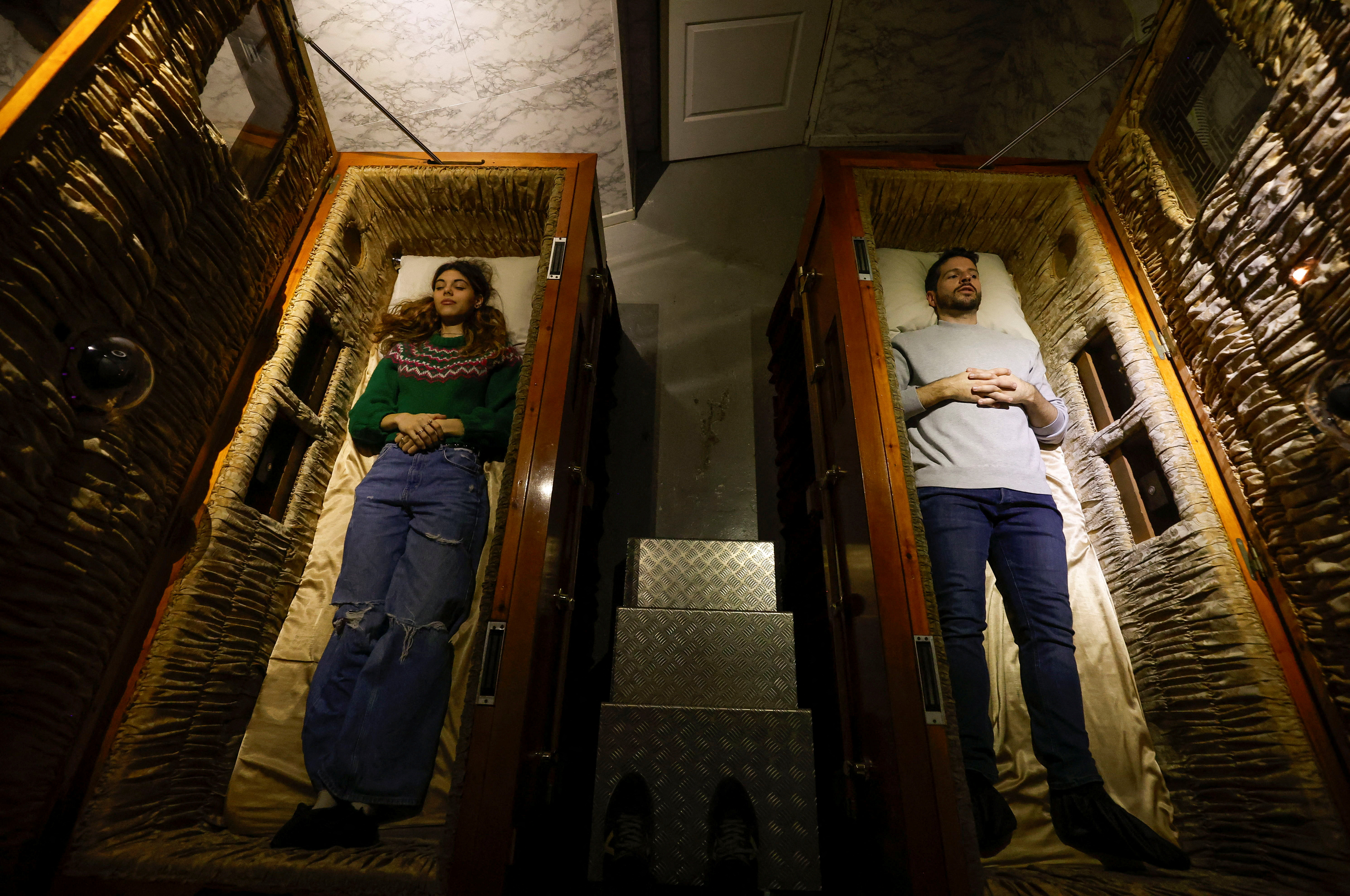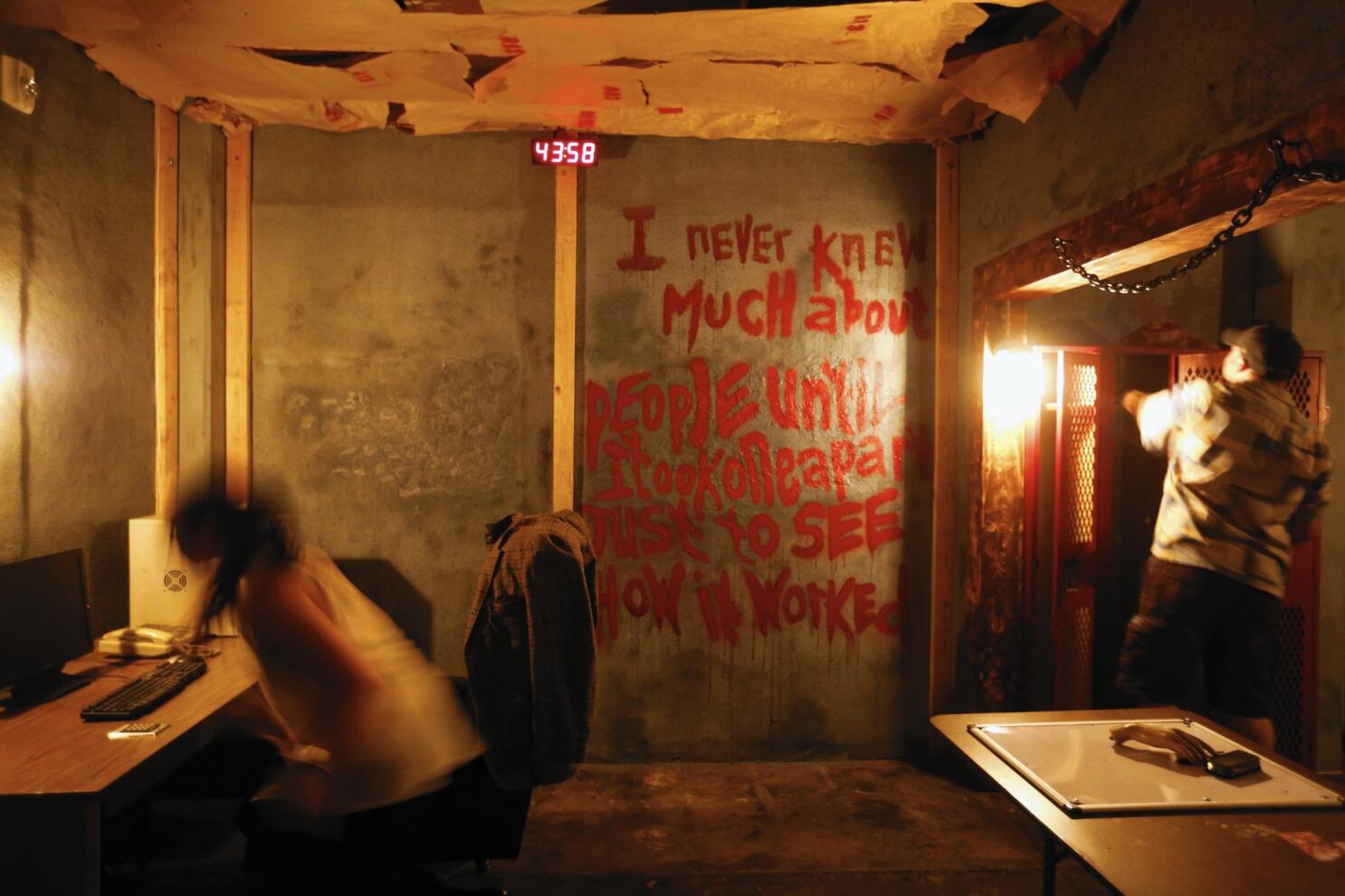Best Escape Room Experience-- Exciting Games and Puzzles for Teams
Best Escape Room Experience-- Exciting Games and Puzzles for Teams
Blog Article
Team Strategies: Just How to Team up Efficiently in an Escape Space
Teams need to actively pay attention to each member's understandings, designate functions that straighten with individual toughness, and keep normal check-ins to make sure focus and protect against redundancy. By cultivating an atmosphere that values communication and versatility, teams can substantially enhance their effectiveness and success prices.
Establish Clear Communication
To assist in clear interaction, it is crucial to mark a main point of get in touch with for details dissemination. Brief, focused updates from each team member can maintain the team educated without overwhelming them with information.

Assign Roles Strategically
While clear communication establishes the structure for reliable teamwork, appointing duties tactically makes sure that each team participant's strengths are utilized effectively. In a retreat area situation, the time-sensitive and complicated nature of obstacles requires an efficient approach to job delegation. By determining and leveraging individual competencies, teams can maximize their analytic capacities and enhance total performance.
First, examine the one-of-a-kind abilities and characteristics of each individual. As an example, someone with an eager eye for information might stand out in finding concealed things, while a logical thinker might be better fit to addressing problems - best escape room. It's similarly vital to have a leader who can manage progression, handle the timeline, and make decisive calls when needed. This role commonly needs strong organizational and interpersonal abilities.
Second, make sure that duties are flexible and versatile. As brand-new challenges emerge, the team must be able to pivot, reallocating jobs as called for. This flexibility helps preserve energy and protects against bottlenecks that might happen due to stiff function projects.
Eventually, a strategic approach to duty job not just makes the most of the strengths of each employee however additionally fosters a natural atmosphere, driving the group towards an effective getaway.
Utilize Diverse Abilities
Identifying and taking advantage of the varied abilities within your team can significantly raise your efficiency in a getaway room. Each employee brings distinct staminas to the table, and efficiently leveraging these capacities can speed up analytical and improve total efficiency. A group participant with strong logical skills may succeed at figuring out intricate codes or patterns, while one more this page with eager empirical abilities might quickly find concealed ideas that others may neglect.
Efficient interaction is vital to using these varied skills. Encourage staff member to voice their insights and ideas quickly, making sure that all potential services are thought about. This comprehensive method fosters a vibrant atmosphere where creativity and essential reasoning can prosper. Additionally, appointing jobs that straighten with each participant's staminas can protect against traffic jams and ensure that progression is continuous.
Moreover, variety in abilities usually converts to diversity in thinking styles, which is important in an escape area setup. While some challenges may require logical thinking and precision, others may take advantage of imaginative and lateral thinking. By identifying and leveraging this diversity, groups can deal with a more comprehensive series of difficulties better, thus increasing their opportunities of an effective getaway.
Manage Time Effectively

First, allot initial minutes for a fast study of the space. Recognize noticeable problems and separate tasks based on employee' strengths, guaranteeing that nobody is still. Set inner time checkpoints to assess development periodically; for example, aim to have half the challenges fixed by the mid-point of the game. This practice can assist maintain the team focused and prevent time from sliding away undetected.
In addition, prevent one-track mind. If a problem blog here is taking as well long, turn team participants or go on to an additional challenge, returning later on with fresh point of views. Interaction is critical-- keep every person updated on addressed challenges and remaining tasks to stay clear of redundant initiatives.
Lastly, utilize any kind of hints or ideas moderately yet strategically - best escape room. Recognizing when to ask for help can save beneficial time. By adhering to these time monitoring concepts, groups can significantly enhance their opportunities of an effective and satisfying escape space their website experience
Debrief and Mirror
Reflection is a vital facet of team advancement and renovation in the context of escape areas. Once the difficulty is completed, whether efficiently or not, it is vital for the group to participate in a structured debriefing session. This process enables employee to evaluate their performance, determine staminas, and determine locations for renovation.
Begin the debrief by discussing what went well. Highlight particular circumstances of effective communication, analytical, and collaboration. Recognizing these positive habits enhances them and encourages their rep in future challenges.
Review minutes of complication, miscommunication, or inefficient methods. Motivate an open and constructive dialogue where team participants can share their viewpoints without anxiety of objection.
Conclusion
Finally, successful partnership in a retreat area is based upon clear interaction, strategic role assignments, the efficient use of varied abilities, and competent time administration. Routine check-ins and structured debriefings are important for preserving focus and fostering continuous improvement. By creating a natural and flexible team environment, the probability of effectively fixing puzzles and achieving the purpose of running away the space is substantially improved. This approach not just ensures success yet also promotes cumulative growth and discovering.
Report this page